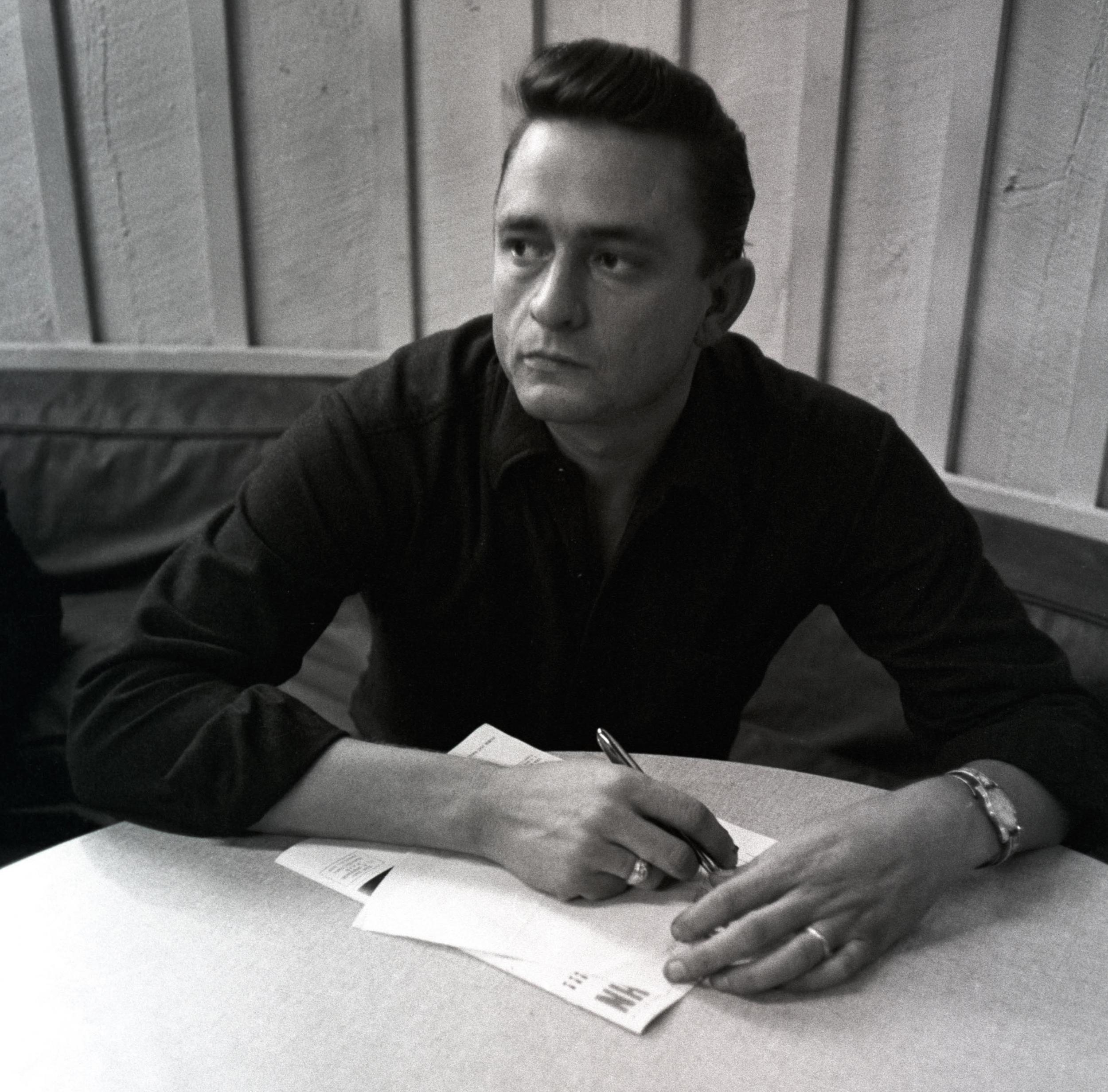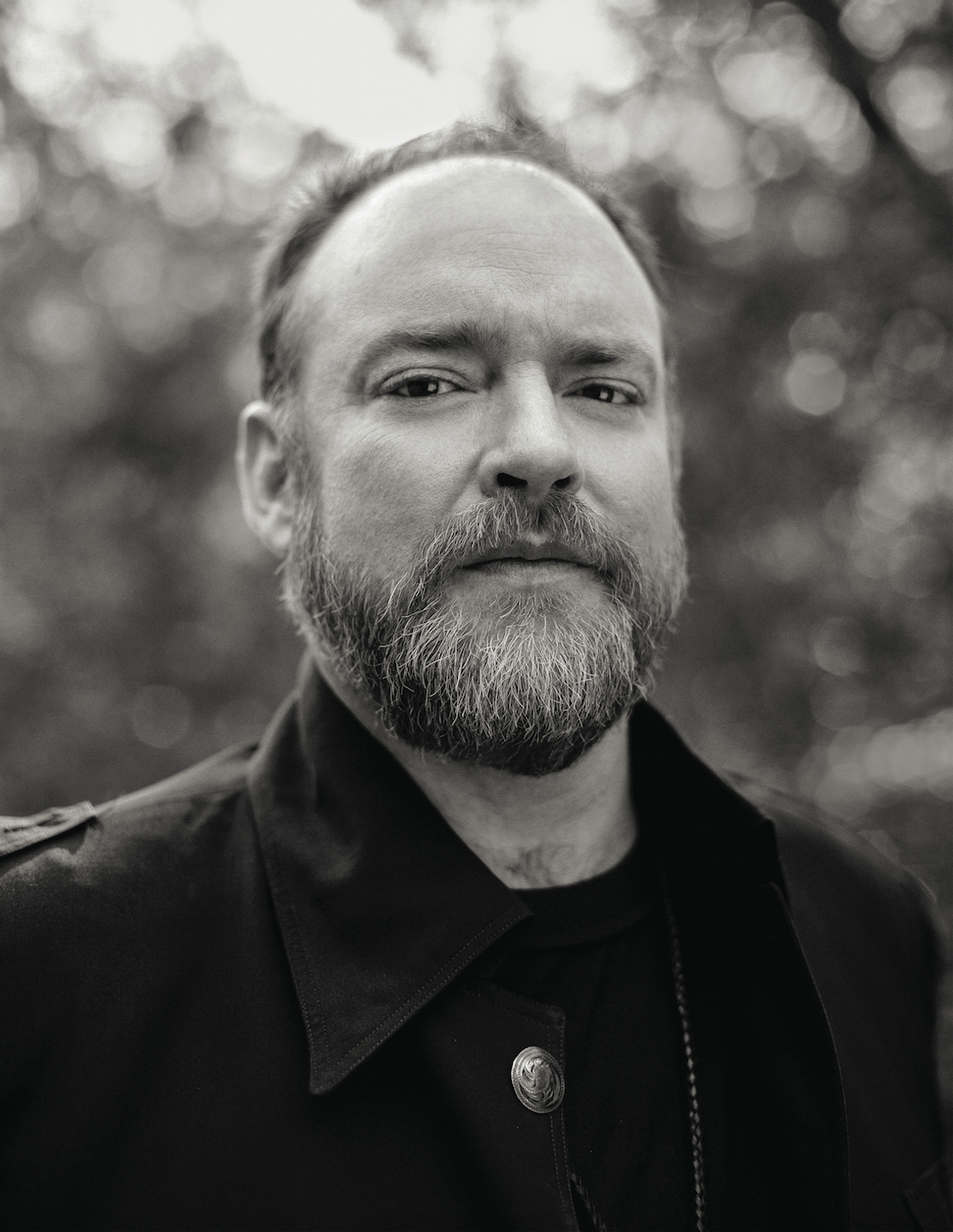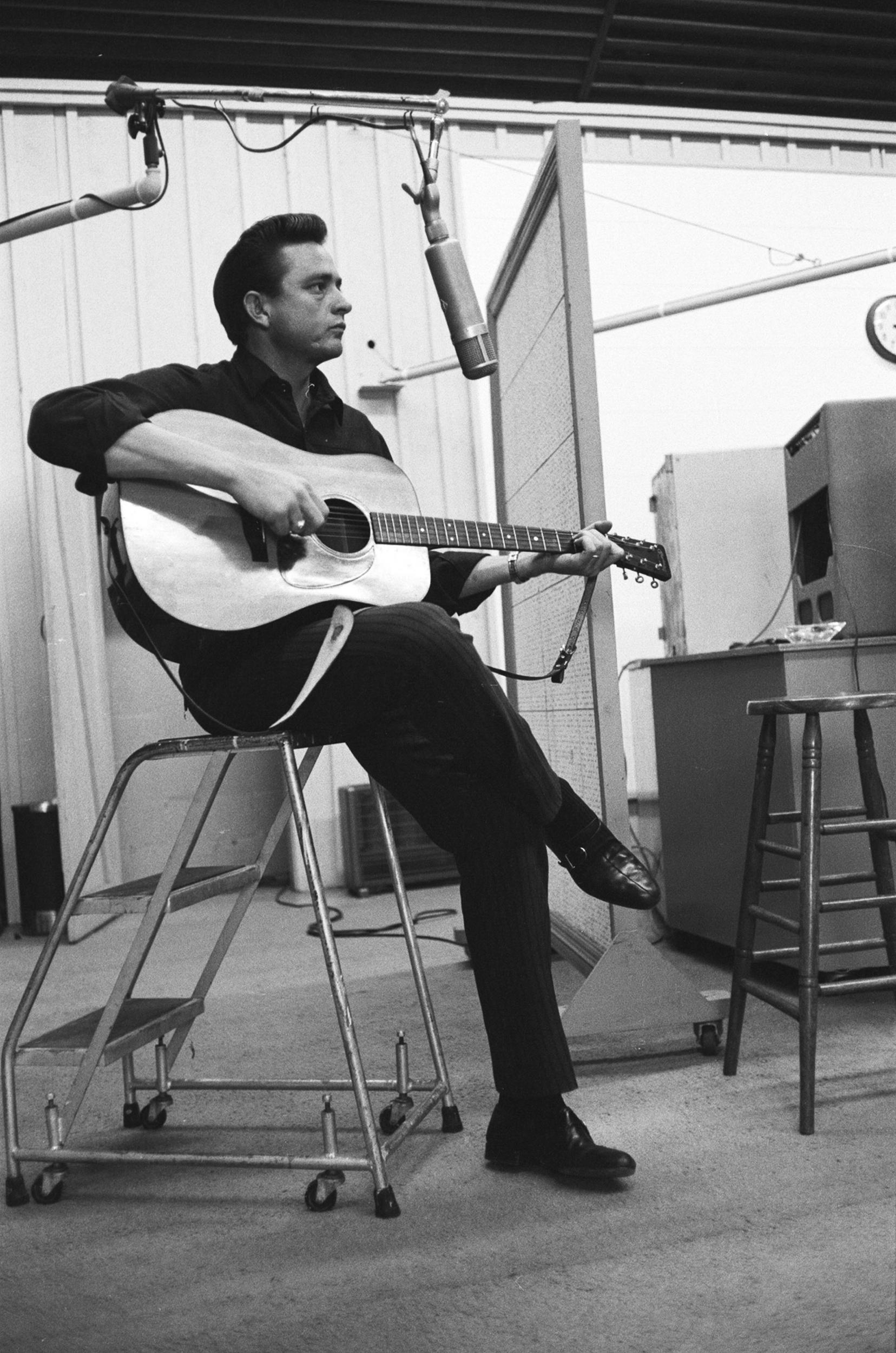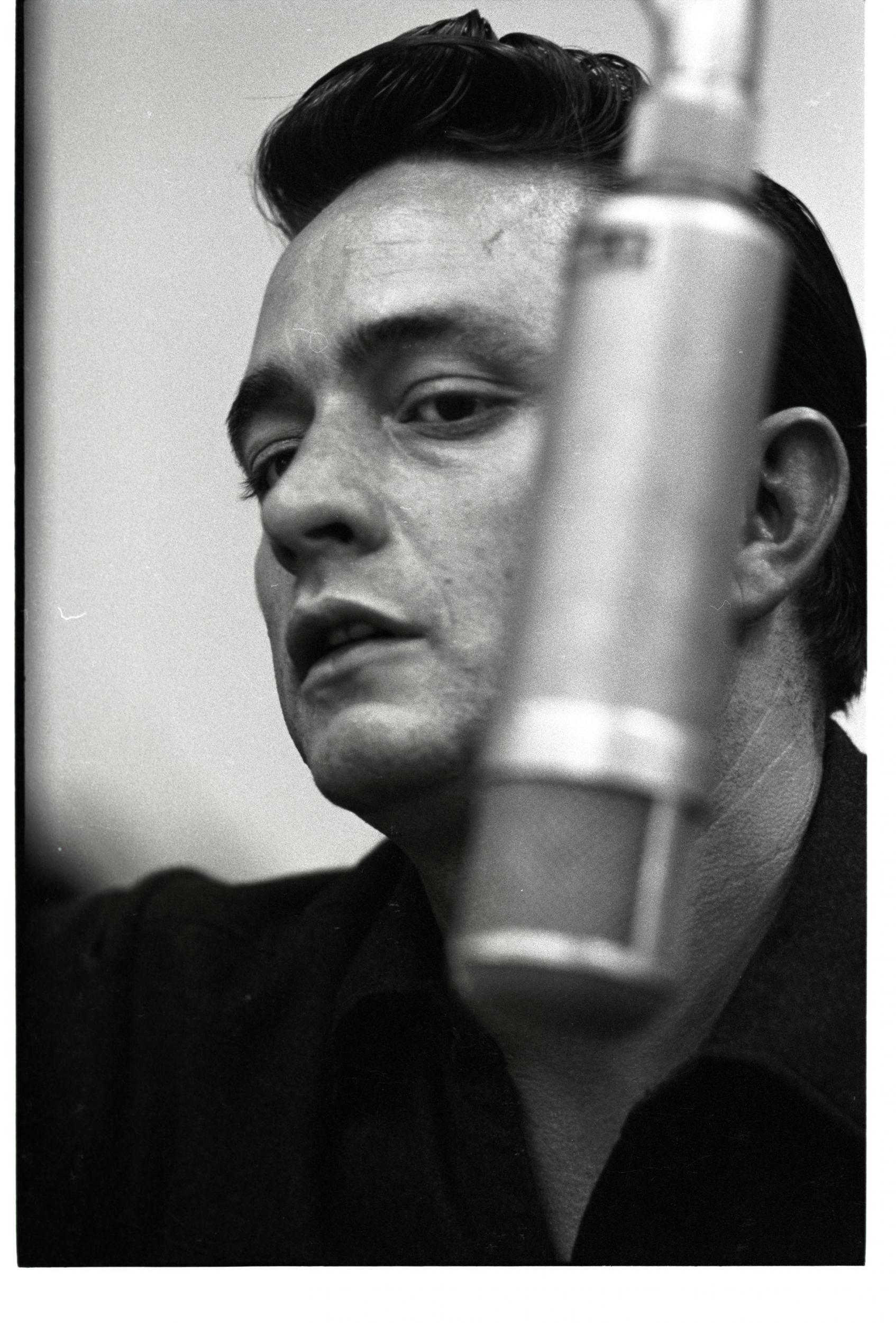Johnny Cash, Forever Words: John Carter Cash discusses the new tribute to his father's work
The producer and musician explains how he came to compile an album from his late father's unpublished poems, letters and lyrics, what Johnny Cash would have thought of the political climate of today, and why a song performed by the late Chris Cornell still brings him to tears

Your support helps us to tell the story
This election is still a dead heat, according to most polls. In a fight with such wafer-thin margins, we need reporters on the ground talking to the people Trump and Harris are courting. Your support allows us to keep sending journalists to the story.
The Independent is trusted by 27 million Americans from across the entire political spectrum every month. Unlike many other quality news outlets, we choose not to lock you out of our reporting and analysis with paywalls. But quality journalism must still be paid for.
Help us keep bring these critical stories to light. Your support makes all the difference.
The office of the late Johnny Cash overflowed with notebooks, folders, journals and religious texts. Among these were handwritten poems, letters and song lyrics that the legendary artist had set aside: more than 2,000 pages and scraps of paper.
Out of those, around 200 had never been published before. And from there, Cash’s son, John Carter Cash, began the loving, scholarly endeavour of compiling his father’s writing and forming what would become the source material for Forever Words: a new album featuring artists including Rosanne Cash, Kacey Musgraves, Alison Krauss, Kris Kristofferson and Willie Nelson, Brad Paisley, Elvis Costello, T Bone Burnett, and the late Chris Cornell.
“If he’d have driven a train I still would have done it, ’cause he was my dad,” John Carter says. “I saw this beautiful statement of his whole life when I looked at those works. As I read a lot of them, I often heard music. I saw the possibility of the right artists finishing these, putting music to them. The ones that wound up on the record are things that I believe he would have wanted to share.”

Each artist on the new album loved Cash’s music, and each took the responsibility incredibly seriously. “The words are the steady line through it all, the words are the story,” John Carter observes. “You get the truth of the artistry. I saw some of these artists look down at the words for the first time and the song would just come straight out. I happened to be recording Brad Paisley when he sang ‘Gold All Over The Ground’, pretty much spontaneously after reading the lyrics.
“Steve Berkowitz [co-producer on Forever Words] was there when Elvis Costello wrote ‘I’ll Still Love You’ sitting at the piano, again looking at those words for the first time. And some people took longer and were very careful about it. Chris Cornell took a few weeks to sit back and come up with ‘You Never Knew My Mind’.
“You can read whatever into it, but when [Cornell] wrote that he was in a really good space,” he continues. “I met him backstage at a Johnny Cash show in the mid 1990s, after Kurt Cobain died.
“I walked up to Chris because Soundgarden had changed my life when I was 19 years old in 1989, and I introduced myself, and he said, ‘your dad has influenced me musically as much as any other artist ,if not the most’. So I knew that he would be excited to be a part of it. But it had to connect to his life, and my dad wrote those words in 1967 when he was in a divorce with his first wife Vivian. Chris had been through the same, so my dad’s words connected deeply.”
That emotional outpouring opened the door for Cornell to do the same, he suggests. There were two lyrics – “You never knew my mind” and “I never knew your mind” – and Cornell edited them together before reaching the last line, “I never really knew your mind”. “By then, you understand emotionally what he had gone through,” John Carter says. ”It’s an epic.”
He knew Kris Kristofferson – a former member of country supergroup The Highway Men (along with Cash, Willie Nelson and Waylon Jennings) – would contribute. Cash wrote the lyrics that would become “Forever/I Still Miss Someone” in one of the last weeks of his life – the chorus from “I Still Miss Someone” was written after the death of his wife, June, and Kristofferson was one of his best friends. Having him recite over Nelson’s guitar was exactly right.
Enjoy unlimited access to 100 million ad-free songs and podcasts with Amazon Music
Sign up now for a 4 month free trial (3 months for non-Prime members)
Enjoy unlimited access to 100 million ad-free songs and podcasts with Amazon Music
Sign up now for a 4 month free trial (3 months for non-Prime members)
“Hearing those words: ‘They’re telling me I’m gonna perish/like the flowers I’m gonna cherish’ while Nelson plays ‘I Still Miss Someone’...” John Carter shakes his head as he continues to recite: “Nothing remembered of my fame/nothing remained of my name/the trees I planted still are young/the songs I sang will still be sung...”
“That shows the strength of human spirit, because he knew he wasn’t long for the world,” he says. “Then to follow that track with ‘To June This Morning’, because that was dated February 1970, when my mother was eight months pregnant with me. It speaks about her coming down the stairs when she was carrying quite a burden.
“The album is an arc of hope, no matter how dark it gets. Sometimes it’s about expressing emptiness, nothingness, loss, like ‘You Never Knew My Mind’... sometimes it’s about expressing the darkness of facing yourself with addiction. Sometimes it’s about having the greatest hope you could ever have. And so, there’s an arc of hope in the whole project, to me.”

Each artist stayed true to their signature sound, he notes, but agrees “The Walking Wounded”, with his sister Rosanne on vocals, does sound like a Cash song. He offered her others, but knew this was something special: “I told her, ‘Rose, Rose, this one’,” he recalls with a smile.
Working with her was no different to working with any of the other artists on the record: being in the studio with his parents, it was only occasionally that he would remember it was his mother and father he was working with. “They were the people in front of the microphone. It’s the same with Roseanne. I tried to show them the same respect, and we both came to it being excited about that creative environment.”
Wondering about the mass appeal his father’s music had, John Carter mentions how Cash could expose himself and his frailties “and you would still love him and respect him”.
“That’s part of it,” he says, “but there’s also the Man in Black, the image of cool. Five-year-olds would want to dress like him and dance around to ‘Ring of Fire’. There are a lot of things about my father, various things, that people connect with. He was that diverse of a person, and he has a diverse fanbase. There are new fans every day who are younger than 10 and they know every one of his songs.
“What’s gonna matter in 500 years?” he questions. ”I didn’t set out with Steve to make a ‘Johnny Cash album’. This is about his life, these are the words that he wrote. So musically to me it could go anywhere. The thread that runs through it all is hope, and the words, and what makes that possible with the diversity of genres on this album, is that the artists know Johnny Cash music, and they respect him.”
Even the so-called “uneducated” could hear those words and the genius of them, and relate, he says. Cash was always open. Fans, journalists, people on the street, they ask what he would have thought about Donald Trump. Well, he would have had him round for dinner, and they would have sat down and had a nice meal, and they would have chatted.

“He wasn’t political,” John Carter shrugs. “He wasn’t controversial unless it was to save somebody’s ass. He hated war – he was a man of peace. He taught me to never raise my fist in anger, and I never saw him do so. But he still went and sang for the troops in Vietnam when 18- and 19-year-old boys were over there scared half to death.
Honouring that stance, Cash’s family posted a powerful open letter after a neo-Nazi was spotted wearing a T-shirt bearing his name.
“[Johnny Cash] would be horrified at even a casual use of his name or image for an idea or a cause founded in persecution and hatred,” they said in the statement. “The white supremacists and neo-Nazis who marched in Charlottesville are poison in our society, and an insult to every American hero who wore a uniform to fight the Nazis in WWII. Several men in the extended Cash family were among those who served with honour.
“Our dad told each of us, over and over throughout our lives, ‘Children, you can choose love or hate. I choose love.’
“We do not judge race, colour, sexual orientation or creed. We value the capacity for love and the impulse towards kindness. We respect diversity, and cherish our shared humanity. We recognise the suffering of other human beings, and remain committed to our natural instinct for compassion and service.
“To any who claim supremacy over other human beings, to any who believe in racial or religious hierarchy: we are not you. Our father, as a person, icon, or symbol, is not you. We ask that the Cash name be kept far away from destructive and hateful ideology. We Choose Love.”
It was a reminder, John Carter says now, of how Cash lived his life and what he stood for. “It’s the same thing as with the president – he [Cash] would have hated the hate, not the hater.”
Referring to another recent case, of a ’cease and desist’ against a white supremacist radio show that had been playing Cash’s cover of “I Won’t Back Down”, John Carter adds: “He would not have endorsed, nor allowed, his music to be on that programme, but he would have asked them to come in, he would have read them the Bible. He was about peace and bringing people together.”
Aged 48, he feels that his relationship with his father’s work has changed gradually from what it was in his thirties.
“It’s like communicating with him as a different person than I was when he passed away,” he says. “It’s been a healing, but also a scholarly work, and experiencing time with my best friend just by reading his words, and hearing his laughter. It’s been many different things to me.”
He loves his sister Rosanne’s work on “Walking Wounded”. He loves “June’s Sundown” because his sister Carline Carter did it. He loves “Jellico Coal Man” because, well... it’s T Bone Burnett.
“They’re all so different and so wonderful in different ways,” he says with another smile. ”The one I can barely even talk about without feeling like I’m gonna cry is ‘You Never Knew My Mind’, because I got to know Chris. He connected.”
‘Johnny Cash: Forever Words’ produced by John Carter Cash and Steve Berkowitz is released on 6 April via Sony Legacy Recordings
Join our commenting forum
Join thought-provoking conversations, follow other Independent readers and see their replies
Comments